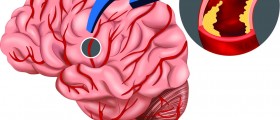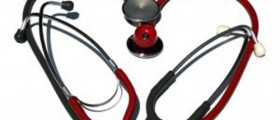MI is short for myocardial infarction (a heart attack), a life-threatening condition that requires prompt medical attention. Management of patients suffering from myocardial infarction is complex and is supposed to start as soon as the person is diagnosed with the condition. Patients at first require adequate pre-hospital management and stabilization of vital parameters. They need to be immediately transferred into the hospital where they will receive further treatment.Pre-hospital Management
If one appears to be suffering from heart attack, an emergency ambulance must be called as soon as possible, without any delay. Once medical professionals reach the patient, he/ she undergoes electrocardiogram (EKG) which confirms the condition.
Patients who have had a cardiac arrest require cardiopulmonary resuscitation. It is essential for all people to be familiar with principles of cardiopulmonary resuscitation and this way help people suffering from heart attack until professional help arrives.
Pre-hospital treatment includes oxygen (not routinely administered but many times required), pain-relief medications (opoids such as morphine) and Aspirin. It is also of great importance to create an intravenous access via which most medications are administered. Pre-hospital thrombolysis is required only if the time frame between the onset of MI and arrival of professional medical help is longer than half an hour.
Hospital Care of Patients Suffering from Myocardial Infarction
Once admitted into the hospital patients undergo blood tests for cardiac enzymes, full blood count and electrolytes. Renal function, level of glucose, lipids, CRP and clotting screen are also evaluated immediately after arrival. Monitoring of such patients as well as treatment with oxygen and pain-relieving drugs continue.
The goal of further treatment is reperfusion i.e. prompt re-establishment of blood flow through clogged arteries. This can be achieved by percutaneous coronary intervention or thrombolytic therapy.
Primary percutaneous transluminal coronary angioplasty is supposed to be performed as soon as possible. Any delay may cause severe damage to the heart or even lethal outcome.
Fibrinolytic drugs used in treatment for myocardial infarction are administered in people who cannot undergo percutaneous coronary intervention within 90 minutes of diagnosis. Such patients receive some thrombolytic drug together with unfractionated heparin. This treatment lasts maximum 2 days. Reperfusion achieved this way may not be complete and carries risk of late reocclusion and intracranial hemorrhage. Fibrinolysis is, therefore, contraindicated in patients with bleeding disorders, those with a history of recent hemorrhage, trauma, surgery and acute cerebrovascular event.
And finally, coronary bypass surgery is performed only in a few sufferers of myocardial infarction in the acute phase of the disease. It is the only treatment modality for individuals in whom coronary occlusion cannot be dealt with percutaneous coronary intervention and in those with refractory symptoms after the previous mentioned procedure. Coronary bypass surgery is also indicated in case of cardiogenic shock as well as mechanical complications (ventricular rupture, acute mitral regurgitation and ventricular septal defect).

















Your thoughts on this
Loading...